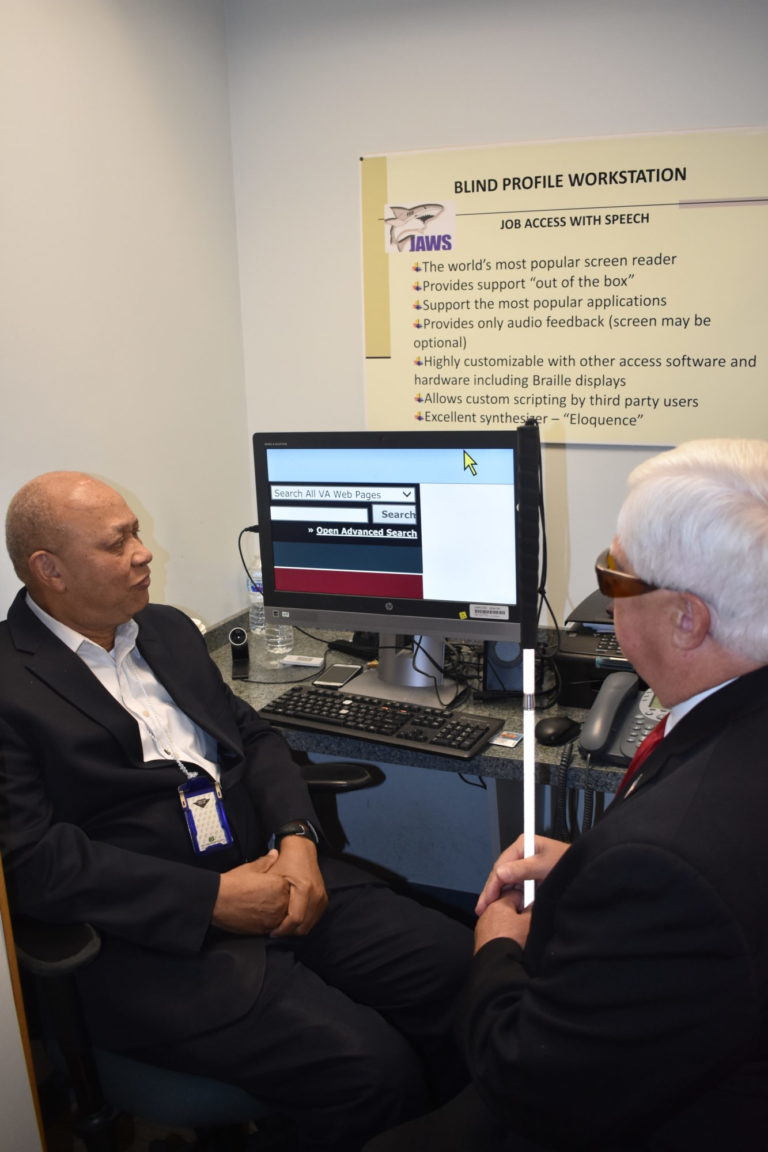Veterans’ Care Review Partnership

The Veterans Care Review is conducted at each of the 13 VA Blind Rehabilitation Centers nationwide as well as all 9 VISOR Clinics.
Over several days, the review team will visit the facility and meet separately with the staff and the veterans attending the BRC. Various aspects of the programs are reviewed: orientation and mobility, living skills, manual skills, low-vision therapy, computer access training, low-vision clinic, optometry, eye clinic, ophthalmology, recreation therapy, social work, psychology, nursing, diabetic education, and pharmacy. The reviewer also meets with the Visual Impairment Services Team (VIST) Coordinators individually. The purpose of this site visit is to evaluate the full curriculum of care and to share findings with staff, the facility administration and VA’s Central Office BRS to promote and expand the facility’s successful procedures. This also affords our team a cooperative exchange to find and alleviate issues and take advantage of existing opportunities to make the facility as productive and safe as possible for our blind veterans.
BVA review team also holds information sessions with the veterans and provides literature about BVA. BVA’s evaluations have brought about a number of improvements to blind rehabilitation services, such as ensuring each of the facilities has the training and equipment it needs. Our Veterans Care Reviews have been instrumental in adding much needed additional staff for BRCs and VISORs, getting new training equipment, making improvements to BRC or VISOR buildings. The Veterans Care Review is a collaborative effort between BVA and the Department of Veteran Affairs (VA) to share best practices. After the Veterans Care Review, BVA will then provide comprehensive reports to each BRC or VISOR Medical Center Director, VA Central Office and BVA with observations and recommendations to improvement.
This is just one-way BVA fulfills the mission it’s pursued since the end of World War II: to promote the welfare of blinded veterans so that, notwithstanding their disabilities, they may take their rightful place in the community and work with their fellow citizens toward the creation of a peaceful world.
